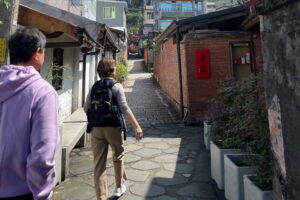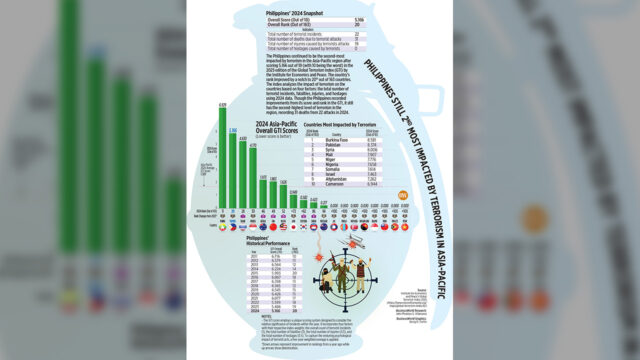DoTr studies ‘final termination’ of common station contract
THE Department of Transportation (DoTr) said it is evaluating the final termination of its contract with the contractors of the Unified Grand Central Station at North Avenue-EDSA, Quezon City, also known as the common station for the Metro Rail Transit (MRT) and Light Rail Transit (LRT) lines and the Metro Manila Subway.
“Our legal team is now studying the final termination of the contract so we can move on and finally complete this project,” Transportation Secretary Vivencio B. Dizon said in a statement on Thursday.
The contractors — BF Corp. and Foresight Development and Surveying Co. (BFC-FDSC) — signed a P2.8-billion agreement with the government in 2019 for the construction of Area A of the Unified Grand Central Station project.
The project aims to link Metro Manila’s main train lines, including LRT-1, MRT-3, MRT-7, and eventually the Metro Manila Subway.
The project was initially targeted for completion in the first quarter of 2021. It is designed to have three sections, each built separately: Area A by BFC-FDSC, Area B by Ayala Corp., and Area C by San Miguel Corp. (SMC), the concessionaire for the MRT-7 project.
Mr. Dizon said the project’s construction delays are “unacceptable,” as progress has remained idle for more than a year.
“This project should by now have been completed, and the public should already be benefiting from it,” Mr. Dizon said.
BusinessWorld sought comments from BFC-FDSC via e-mail and text messages but had yet to receive a response by the deadline.
Foresight Development and Surveying Co. was formerly registered with the Securities and Exchange Commission on March 25, 1997, as Foresight Surveying Co., with a primary focus on surveying and related geodetic engineering services.
Meanwhile, BF Corp., founded by former Metropolitan Manila Development Authority (MMDA) Chairman Bayani F. Fernando, is primarily engaged in general construction and engineering.
Mr. Dizon also warned that the contractor may face penalties and liquidated damages for failing to complete the project within the agreed timeline.
For now, the DoTr is evaluating all available options under the Government Procurement Act or the Public-Private Partnership Code to expedite project completion.
Further, Mr. Dizon acknowledged that the government also bears responsibility for the project delay, calling it a case of government oversight.
“Classic na pagkukulang ng gobyerno po ‘yan — ‘yung hindi pagbabayad on time. Iche-check po natin lahat ‘yan. At the end of the day, ibabalanse po natin lahat ‘yan — ‘yung pagkukulang ng gobyerno, ‘yung pagkukulang ng contractor — at the end, aabot tayo sa solusyon para sa lahat ng mga ‘yan,” Mr. Dizon said.
Under the agreement, the common station is set to be built at a compromise location near the original 2009 site in front of SM Annex (North EDSA) and the 2014 location near Ayala-owned TriNoma Mall.
The common station features a 13,700-square-meter concourse designed to ensure seamless transfers for rail passengers. It will have an intermodal integrated system to facilitate smooth commuter transfers. — Ashley Erika O. Jose





















